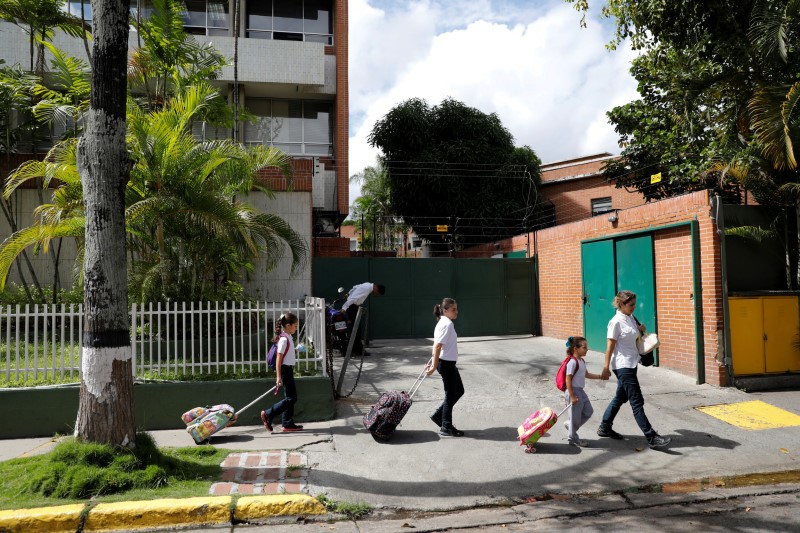
CARACAS (Reuters) – Over months of protests Carlos Garcia Rawlins has been on Venezuela’s streets daily, documenting increasingly violent clashes with security forces, experience that helped put him within eyeshot of a soldier who fatally wounded a young activist at close range.
Hundreds of thousands of Venezuelans have taken to the streets across the country since April to demand elections, solutions to hunger and shortages, and an end to President Nicolas Maduro’s plan to overhaul the constitution.
On Thursday, a thousands-strong march that was aiming to reach the chief prosecutor’s office in Caracas was broken up by security forces with tear gas and pellets. Protesters burned a truck, before dispersing to a wide junction on an urban freeway that has been the site of clashes on several occasions recently.
The freeway runs past La Carlota air base, and soldiers and National Guards fired gas from inside the perimeter of the base to try to clear the highway. About a hundred protesters threw rocks back and began to tear a part of the fence.
Garcia, who has photographed this spot many times, used a concrete barrier in the road for protection and shot the scene with a long lens.
“There are several points, on the bridge of the junction, or below, but always trying to keep ourselves covered by the crash barrier of the freeway,” said Garcia, 38.
“Yesterday, the protesters broke open the fence.”
In a matter of seconds, a youth standing in the gap in the fence jumped down as a group of military men carrying long firearms approached from inside the base.
David Jose Vallenilla, 22, was crouched down on the highway by the fence. At this moment he stood up, protected only by a small rucksack strapped to his chest, and just a few feet from the soldier, who began shooting.
Garcia captured the moment in a series of photos, as Vallenilla falls to the ground, then gets to his feet to escape, as another activist wrapped in the Venezuelan flag and carrying a flimsy wooden shield tries to give him cover and also comes under fire.
Garcia rushed in as protesters gathered round Vallenilla to drag him away, and captured another stark image, of the young man’s face as paramedics drove him away on a motorbike.
“By then he looked very bad, badly injured,” he said.
Vallenilla died in hospital a few minutes later. At least 75 people have been killed since the protests began in April. The protest outside the air base carried on after shooting.
It was the second time in a week that media caught on camera military elements firing weapons at protesters resulting in deaths. In response the government has swiftly detained several members of the security forces accused of the shootings.
A former small businessman who owned phone shops, Garcia has been covering Venezuela for Reuters for more than a decade. His daughter was born two weeks before the latest protests exploded in April. He says the mood is different than a previous round of demonstrations three years ago.
“This time people have lost their fear of authority, they are furious,” Garcia said. “Before, many protesters would run as a soon as they smelt tear gas, now they don’t run.” He said that over the past month the protests against Maduro have become more intense and less organized, meaning photographers must move with the ebb and flow of the demonstrators. His team tries to place itself in different spots, somewhere high up, somewhere at mid distance and somewhere close.
“The opposition protests have been getting more chaotic as the days pass, more disorganized, now it’s not two groups fighting each other,” said Garcia, describing the challenge of following the protests as they fracture into small groups.
“Every day is different.”
Click here to see a related photo essay: http://reut.rs/2t39gdD
(Writing by Frank Jack Daniel; editing by Diane Craft)









